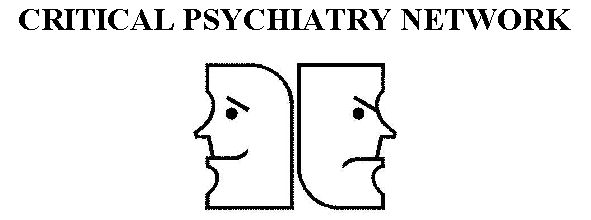

Reprinted with permission from Openmind © Mind (National Association for Mental Health)
POST-PSYCHIATRY
Time to end the ethic of exclusion
Pat Bracken and Phil Thomas
The sweeping changes in mental health services introduced by Mr. Dobson will continue to affect people's lives long after his footfalls have ceased to echo around the Palace of Westminster. Care in the community, he declared, has failed because patients have been left either to become a danger to themselves or to others. He has outlined the components of a 'third way', in which he envisions that both patients and public will be safe. This third way has two components, support and security. Support consists of 24 hour crisis helplines and crisis teams, home treatment services, more supported accommodation, and more counselling. Security includes assertive outreach - 'to keep tabs on people who have been discharged and make contact with people who shy away from getting help', and changes in the law to cover measures such as 'compliance orders' and 'community treatment orders' to ensure that patients get supervised care if they do not take their medication. For years, people who use services have been asking for improved access to services, alternatives to in-patient care such as home treatment and crisis houses, and more psychological help. The government deserves praise for giving its support to the widespread introduction of these services. But many people will have misgivings about assertive outreach and the proposed changes in the law. The government will doubtless argue that these changes are necessary to guarantee public safety. The question is will they? Or are they simply cosmetic measures introduced not to safeguard the public, but to reassure them? It seems to us that once again the debate about mental health policy is concerned with systems of care, rather than the nature of care itself. Indeed, a critical glance at the history of mental health care systems suggests that we are really dealing with systems of exclusion.
Since the dawn of industrialisation, society has sought better and more efficient systems of keeping people regarded as insane out of society. In 1791, the philosopher Jeremy Bentham designed the ‘panopticon’, an architectural edifice for simplifying the segregation and observation of the insane and other social undesirables such as criminals. Mid-nineteenth century social policy incarcerated the insane in Victorian asylums, which excluded them from the world outside, denying them the right to full participation in society. Although many hoped that community care would bring in a new age of tolerance, in which the barriers between the insane and the rest of society would be dismantled, in reality the exclusion has become more subtle. High walls and locked wards have been replaced by inaccurate TV and newspaper accounts of a small number of tragedies which whip up public hostility and fear. The closure of the asylums has brought the difference of ‘mental illness’ to the fore, and confronted us with our fear and prejudice towards irrational states. In every nook and cranny of our society the mentally ill are reviled, mocked, and abused. Those suffering from mental health problems are, to use New Labour’s expression, socially excluded. Trapped by poverty, unemployment, poor housing and discrimination by local communities. Despite this, the government’s response to the ‘failure’ of community care is to attach even more importance to services whose underlying premis is that mental health problems are illnesses that require treatment. In this Third Way, if you decide not to take your medication, the law will ensure that you receive treatment, if necessary riding rough-shod over issues of consent and human rights. The ethic of consent has been subjugated by the imperative of treatment.
The philosopher Zygmunt Bauman (1989) has pointed out that one of the most disturbing features of modern societies is the extent to which the expert disciplines of science and technology have become liberated from criticism by ethics. Ethics, our belief in what is right or wrong, good or bad, fair or unfair, has become uncoupled from science and social policy in a way that has morally impoverished society. We have only to remember the atrocities of the Third Reich to see what happens when medical science is practiced in an ethical vacuum. Genetics, under the guise of ‘racial inferiority’ was used to justify the extermination of Jews, gypsies, homosexuals and the mentally ill. Barham (1992) has commented on the similarities between the exclusion of the insane, and the processes of distancing that allowed doctors in Nazi Germany to see those excluded members of society as non-human. Some may see this as scaremongering, but recent events do little to reassure us that the ethics of health care has kept pace with its technology. The tragic deaths of the Bristol cardiac infants suggests that some practitioners are so intoxicated by power and technology, that they are incapable of thinking and acting ethically.
Whilst everybody wants to improve our systems of mental health care, it is a mistake to believe that, taken alone, such actions will solve the problems of the mentally ill. There is an urgent need for a new debate about the ethics of mental health care. For its part, the government should take steps to tackle the social exclusion of those who experience mental health problems. Models for this already exist in equal opportunity legislation for disabled people, and anti-discrimination legislation aimed at making racism and sexism unacceptable. There must be legislation to make discrimination against the mentally ill an offence. The government must establish an Equal Rights Commission charged with the responsibility of challenging discrimination against those who have experienced mental health problems in all areas of society, in the media, the workplace, and housing. Such a body would campaign for much needed change in other areas such as employment and benefit law and policy, to make it easier for people who have experienced mental health problems participate more fully in society.